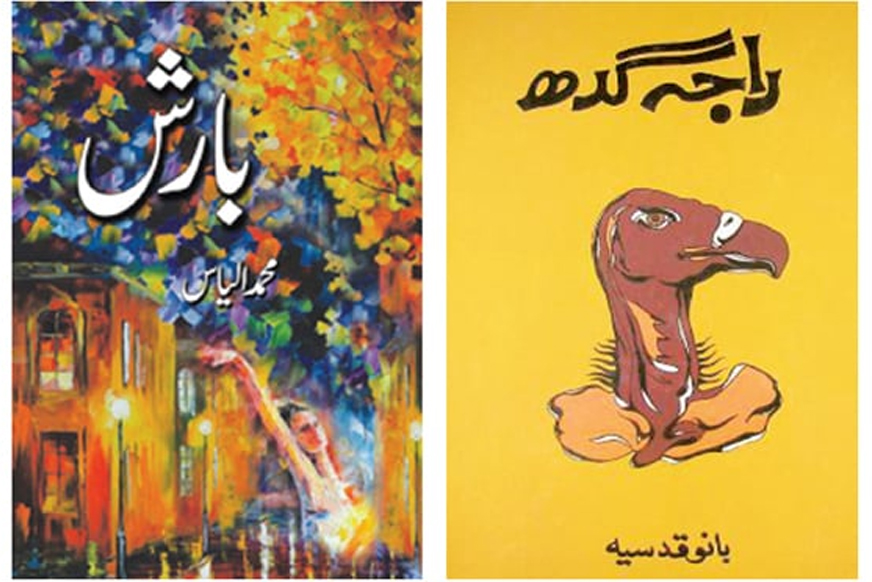Urdu novels are a popular and valued art form in Pakistan, with many great writers writing timeless masterpieces that captivate readers and offer profound insights. Reading these novels provides a means of learning and gaining deeper understanding of human nature, society, and culture.
Peer-e-Kamil by Umera Ahmed
Peer-e-Kamil is an iconic Urdu novel by Umera Ahmed that has captured the hearts of readers worldwide. It was first published in Shuaa Digest in 2004.
The novel revolves around the characters of Imama Hashmi and Salaar Sikander and explores the deviational sect of society that questions the finality of the Prophet Muhammad (PBUH). Umera Ahmed beautifully narrates the tragic journey of these two souls, each on their unique spiritual paths, and how destiny brings them together.
Mushaf by Nemrah Ahmed
Mushaf, meaning Quran in Arabic, is a must-read novel by Nemrah Ahmed.
The story follows Mehmal Ibrahim, an orphaned girl living with her uncles and aunts after her father’s death. Mehmal’s life takes a dramatic turn when she encounters a Quran, represented by a book with a black cover, which she is told holds the answers to life’s questions. This novel takes readers on an emotional rollercoaster and explores into themes of spiritual developing and transformation.
Jannat k Patty by Nemrah Ahmed
Jannat k Pattay is another masterpiece by Nemrah Ahmed, offering a blend of romance, emotions, suspense, and mystery. The story centers around Haya, a young woman on a journey of religious awakening. Despite being a modern and beautiful girl, Haya decides to wear the hijab, which leads to criticism from her family. As Haya discovers the true nature of some men and society, the novel explores deep emotions and spiritual themes.
Namal by Nemrah Ahmed
Namal is a compelling Urdu novel based on the Quranic Surah “Namal,” meaning ants. This story revolves around a murder case that sheds light on the corrupting influence of money in society.
The novel’s protagonist, Faris Ghazi, is an intelligence officer wrongly accused of murder. As the story unfolds, the characters are portrayed in shades of grey, and the narrative touches upon spiritual themes, a signature of Nemrah Ahmed’s novels.
Abdullah by Hashim Nadeem
Abdullah is a spiritual novel that traces the journey of Sahir, later known as Abdullah, from Ishq-e-Majazi (worldly love) to Ishq-e-Haqeeqi (divine love). Sahir falls in love with Zohra, an event that transforms his life and leads him on a path of spiritual awakening. The novel emphasizes the concept that love is not merely a union of bodies but of souls.

La-Hasil by Umera Ahmed
La-Hasil is among the finest Urdu novels, delving into the life of a girl who faces numerous hardships while growing up. These challenges lead her down a path to becoming a call girl, a fate she never truly accepts. The novel candidly portrays the harsh realities of society, illuminating the unquenchable desires that fail to satisfy the human soul.
Umrao jan Ada by Mir Hadi Ruswa
This iconic novel by Mir Hadi Ruswa tells the story of Amiran, a young girl kidnapped and sold in Lucknow. The narrative exposes the social and moral hypocrisy prevalent in society. Amiran, after being sold, rises to fame as Umrao Jan Ada, a talented courtesan known for her beauty, charm, poetry, dance, and singing.
Mirat ul Uroos by Deputy Nazeer Ahmed
Mirat ul Uroos is another remarkable novel by Deputy Nazeer Ahmed. The story revolves around two main characters, Akbari and Asgari, and their respective grandchildren. The stark difference between the two families and the choices their grandsons make form the core of the narrative. The novel raises questions about forgiveness, faith, and societal expectations.
Amar Bail by Umera Ahmed
Amar Bail, another masterpiece by Umera Ahmed, tells the love story of Umar Jehangir and Aleezay Sikandar. The novel explores the corrupt bureaucrat culture in Pakistan, the impact of broken families, lust for power, insecurities, sacrifices, and imbalanced relationships. Umera Ahmed’s skillful storytelling brings to light societal issues like nepotism, corruption, and injustice.
Udaas Naslain by Abdullah Hussain
This extraordinary novel by Abdullah Hussain is divided into three parts, narrating the time of the British Raj, the Indian Independence movement, and the partition of India.
The story revolves around Muslim families, particularly Roshan Agha, Niaz Baig, and Ayaz Baig. The novel delves into the complex dynamics of these families and their experiences during significant historical events.



